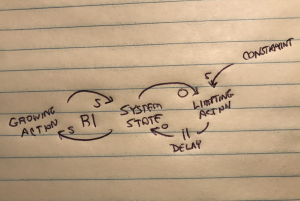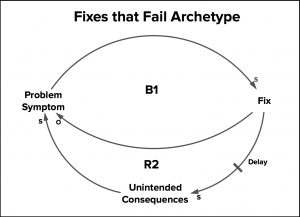As you reflect on your past leadership work and consider the type of leader you want to be in the future, it is important to recognize whether you are a “transformational leader” or a “transactional leader”. Why? These are two very different types of leadership and perhaps at times you realized you were a square peg in a round hole and just did not understand why.
McGregor Burns, in his book Leadership (1978, Harper & Row), gives us some language and concepts to best understand the difference between these two types of leaders:
- Transformational leaders are those who bring about change; they never leave a situation the way they found it, and the organization (situation, community, etc.) will be different as a result of this kind of leadership. This type of leadership is generally capable of sweeping changes to the organization, changes to the structure and nature of the organization.
- Transactional leaders, on the other hand, are those who view the leader-follower relationship as just that, a transaction. In other words, they would operate as “if you do such and such for me, I’ll see that you get rewarded”. Transactional leaders are more interested in maintaining equilibrium or status quo through evolutionary or gradual changes. Some might just call these “managers”.
The table below (Table 1.1) gives an additional comparison of some of the attitudes and activities of these two types of leaders.
Which type of leader are you? Can you tell by your results? Should every leader be a transformational leader? Can every leader be one? This is not really about elevating one type of leader over the other. The point of this brief discussion is simply the reality that leaders generally are one or the other, or somewhere in between, and that it is important to recognize this in your own role or recognize this for those that you manage as leaders. You can promote someone into leadership; however, it is important to understand what type of leadership they are capable of demonstrating and also what results you are expecting.
Table 1.1
Transformational Leader
- Engages actively with a personal outlook – shaping and creating ideas vs. responding to ideas.
- Changes how people think about what is possible
- Increases options and turns ideas into exciting stories and images.
- Seeks risks when promising opportunities arise.
- Relates to others directly, intuitively, empathetically.
- Focus is on substance of events and decisions, including what it means for participants.
- Sense of value comes from desire to alter the way things are and shape the future.
Transactional Leader
- Engages passively and impersonally – goals are born out of necessity (responding and reacting) rather than desires.
- Works with people to design compromises, balance opposing views, limit choices, or negotiating and coercing where necessary.
- Avoids risks.
- Focus on process or “how” decisions are made rather than “what” decisions to make.
- Sense of values comes from perpetuating and strengthening existing processes and structures and evolving them.

